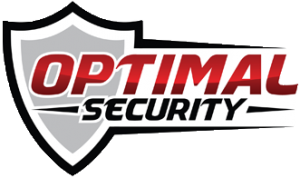Effective security training is crucial to protecting individuals, organizations, and communities. With the increasing complexity of threats in today’s environment, a well-structured security training program is not just a necessity but a cornerstone of trust and professionalism. Below, we explore five key components of security training, as outlined in a detailed curriculum for private security professionals.
Enhancing Security Through Comprehensive Training
Understanding Legal Foundations
A comprehensive knowledge of legal regulations is vital for security professionals. The curriculum emphasizes statutes such as Chapter 493 of the Florida Statutes and Chapter 5N-1 of the Florida Administrative Code. These laws govern the conduct, licensing, and operational standards for private security personnel.
Key points include:
- Legislative Intent: Regulations are designed to protect the public from untrained or unethical practices in the security field.
- Definitions and Standards: Terms like "good moral character" and "security officer" are clearly defined to maintain professional integrity.
- Compliance Requirements: Agencies and individuals must adhere to strict standards, including proper licensure and insurance, to ensure accountability.
Understanding these laws equips security personnel to operate legally and ethically, safeguarding their clients and the general public.
Licensing and Certification Essentials
The process of obtaining and maintaining licensure is central to a security professional’s career. Various licenses, such as Class "D" for unarmed security officers and Class "G" for armed officers, come with distinct requirements.
Highlights include:
- Applicants must meet age, residency, and character prerequisites.
- Training requirements include 40 hours of professional instruction for Class "D" licenses and 28 hours of firearm training for Class "G" licenses.
- Renewal processes and penalties for lapses ensure ongoing compliance.
Licensing not only validates skills but also reinforces public trust in the professionalism of the security industry.
Advanced Training for Real-World Challenges
Effective security training goes beyond basics to prepare professionals for real-world scenarios. This includes:
- Firearms Proficiency: Armed officers must demonstrate mastery of specific weapon types and complete requalification training annually.
- Physical and Emotional Fitness: Class "G" applicants must pass fitness evaluations to ensure they can safely handle firearms.
- Specialized Skills: Managers and instructors undergo advanced courses to enhance operational leadership and instructional capabilities.
Advanced training ensures readiness to address diverse and dynamic threats, making security personnel more effective in their roles.
Ethical Conduct and Professional Accountability
The curriculum outlines strict ethical standards to uphold the integrity of the profession. Violations such as impersonating law enforcement or using excessive force are strictly prohibited.
Important considerations include:
- Disciplinary Actions: Misconduct, negligence, or fraud can result in suspension or revocation of licenses.
- Incident Reporting: Any use of firearms must be documented and reported to ensure transparency.
- Continuous Education: Periodic training refreshes knowledge and adapts skills to evolving legal and operational demands.
Upholding these ethical standards fosters trust between security professionals and the communities they serve.
Navigating Emergencies with Confidence
Preparedness is the backbone of security training, focusing on swift and effective responses during emergencies.
Key areas include:
- Incident Management: Security officers learn to handle crises, from theft prevention to managing threats to physical safety.
- Coordination with Authorities: Establishing clear communication with law enforcement ensures efficient incident resolution.
- Post-Incident Procedures: Documentation and reporting provide accountability and support legal compliance.
Comprehensive emergency training transforms security personnel into first responders who can mitigate risks and protect lives.
Sign Up with Optimal Security Today At Optimal Security, we are committed to empowering aspiring security professionals with the knowledge, skills, and credentials they need to succeed. By emphasizing legal understanding, advanced training, ethics, and emergency readiness, we prepare you to become a trusted guardian of safety and order in your community.
Take the first step toward a rewarding career in security—Sign Up with Optimal Security and join the ranks of industry leaders dedicated to making the world a safer place.
